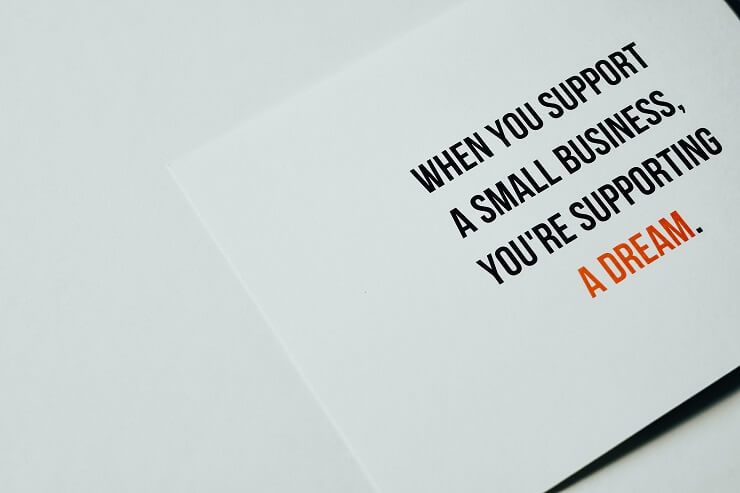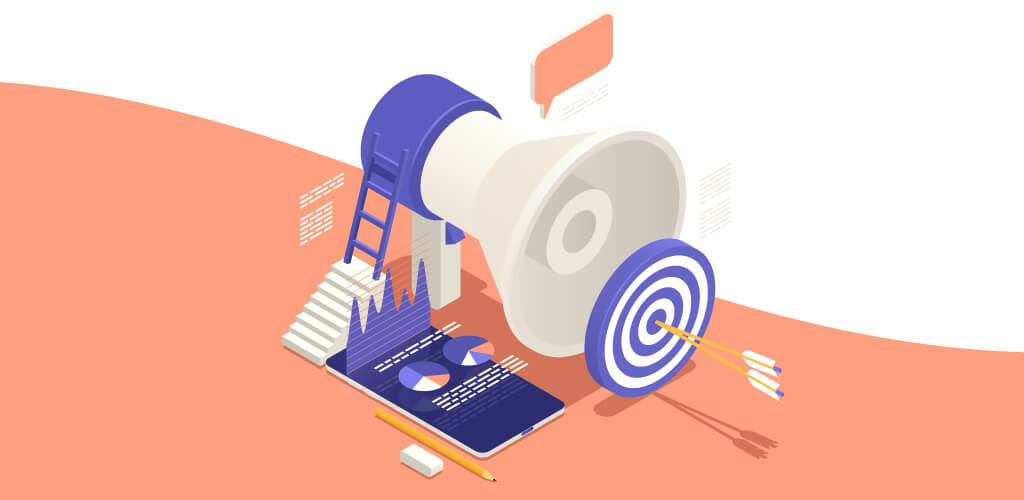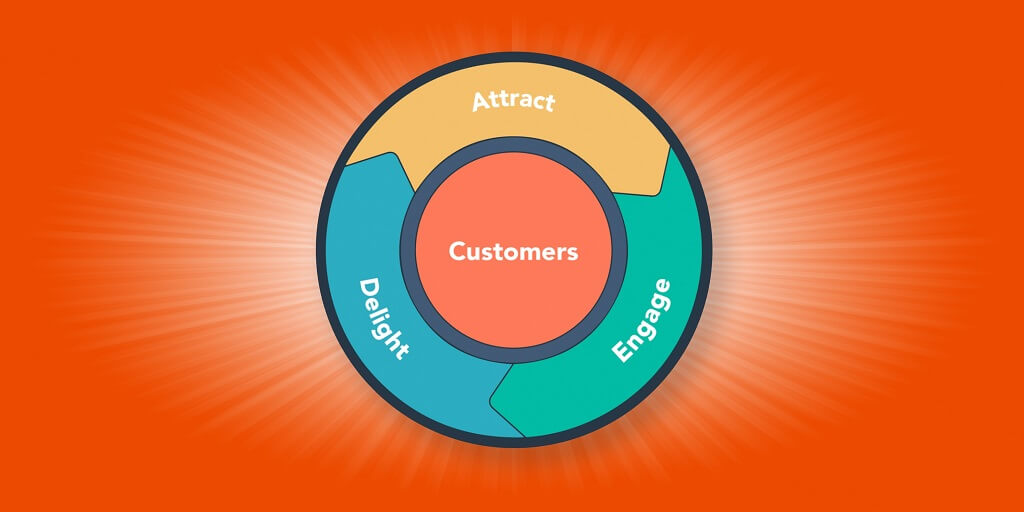Marketing is a difficult concept to grasp for many business owners.
You typically have a product or an idea that is really good, and you create a business to be able to sell this and selling is not the problem here. If people would just come in and be willing to listen to you explain your product or service, you are sure you would have a lot more business.
That’s where marketing comes in and where the problems start… how do I attract people to my business?
You try a lot of things with the little money you have and most, if not all of them, end up not working out at all.
You see competitors and other businesses use billboards, Google Ads, Facebook ads, etc. but every time you try them it doesn’t work.
Why?
I’ll tell you why and it centres around two big truths that you probably have never thought of:
1. Most businesses are in the same boat as you.
Most of them are testing and trying and following the same shiny object you are and getting the same results.
If you chose to advertise on the radio because you see others do it, chances are the reverse is true as well. There’s probably another business that happened to hear your radio ad and thought that if it worked for you it might work for them too.
A lot of these large companies that own the marketing channel are selling the marketing dream.
“Advertise with us, give us as much money as possible and you will get tons of people in your store. You will make tons of money and you will be happy you did it.”
Somehow, in a magical way, if you do this one thing with them you will be set and your business will grow until you are the next Elon Musk. So people that don’t fully understand the concept of small business marketing get swept off their feet because they don’t know any better and are promptly disappointed afterwards.
Marketing is hard. There is no magic pill or easy solution, but there are ways to consistently grow over time, and we’ll go over some of these way later on.
2. Marketing is about connecting with people in a meaningful way.
Sales and marketing are two different sides of the same coin. Yet most people use them together and use their “marketing” to sell.
Have you seen the social media posts from small businesses in your area?
“I’m the best, use my services!”
“We provide the best customer service so buy from us.”
Over and over again, shoving it down people’s throats that they are a business and have something to sell. Their social platforms, which are a marketing channel, are used not to talk to people in an online community setting like intended, but as a megaphone to say the same things over and over again.
And that’s just one example.
Small business marketing involves connecting with people, knowing your community, your current customers, your potential customers. Create relationships that generate opportunities of growth.
Finding that small core group of people that will love what you do and tell other people about it. Referrals are a great indication that you are doing something right.
Treat people like people, online or offline. With your advertising or in person. Ask yourself the question, Would I want to know more about a random business or what they offer if they marketed to me in the same way that I’m marketing? If the answer is no then don’t do it.
Countless times I hear people complain about how tired they are of marketing, of ads, of exaggeration, of coercion, of deceit. Don’t be like most people.
Be real. Be a person to another person, and you’ll naturally see your marketing perform better.
That’s what I’m writing about today. I’ll answer 5 very common questions most people ask me about marketing as a small business, but with the purpose of being real and connecting with people. No fluff, no bullsh*t.
Let’s get started.

1. What’s The Difference Between Large Vs. Small Business Marketing?
This questions doesn’t get asked in this way typically. This is an issue that gets brought up constantly through conversation. Similar to what we talked about earlier in this blog.
Your competition is doing things one way so you want to copy them. Or you want to look like you are large business because somehow you think that’s what people want to see. So you do everything with a shoestring budget or spend money on tactics that are ultimately useless for business growth. All to look more professional or more perfect in your eyes because that’s what YOU think people want to see.
Marketing ultimately is the exact same whether you are a large business or a small one. Difference being the scale. A company with a large marketing budget can do multiple channels well because they have the resources.
Email campaigns, search engine optimization, etc. They can put dedicated people to work on specific sections of their marketing strategy and have the budget to be competitive on them.
A small business, is usually trying to stay afloat. There is little to no marketing budget, and not enough people to work on doing it right.
So instead of trying to do everything with no resources which is only doomed to fail, focus on one thing.
Look at what’s working right now. What marketing channel is bringing people in? It doesn’t matter if it’s not an online channel. What’s working, pick that and focus on it. Make it better.
Forget about the rest.
Improve this one channel, maximize its potential until you feel like it’s not growing anymore and pick something else to focus on.
That way, you have a fully working marketing channel, and over time you will have two. Then three and so on. You will consistently grow until you have enough resources that you can focus on two channels at once… and you get the rest.
It’s like an exponential graph:

You are just merely starting at the start.
Stop caring about what others are doing and focus on what you need to do to slowly, consistently, over time grow your business into whatever you want it to be.
2. How Much Should A Small Business Spend On Marketing?
Short answer: It depends. Spend what you can afford and focus on spending what you have on marketing channels that are bringing you more clients.
Long answer:
As with anything in marketing, what industry you are in, what your profit is, and what you goals are can determine what you should spend. If your business is completely new with no clients, don’t spend anything in marketing (unless you have the ability to).
There are plenty of ways you can connect and interact with people for free. Walk around and introduce yourself to other businesses or to people on the street.
Offer the initial part of your services for free or a sample of your product in exchange for their attention. Connecting and building relationships requires no exchange of money.
Marketing simply means doing it at scale. Focus on things that don’t scale until you have the ability to do so.
I recommend first figuring out who are your ideal customers. The type of people that will WANT to buy your product or service. The ones that will happily review you and recommend you. Find out who your best audience is by talking to people.
What problems does your product or service solve? Who are the type of people you generally connect with best? Who has the money to spend on your business and friends that can do so as well?
Once you know your target audience, then it’s about finding where they hang out online or offline. Then be on those channels to attract more people like them.
I know there’s no mention of money or averages, and that’s by design. Money is a resource, and it doesn’t matter how much resources you send as long as you are spending them doing the right things that will help your business grow. Figure what those right things are, then focus on them.
3. How Do You Develop A Marketing Plan For A Small Business?
Small business marketing relies heavily on strategy. Since resources are limited, it becomes even more important to plan out your actions so that you minimize wasted resources.
I’ve seen small, tiny businesses even, with several hundreds of pages for their marketing plan. They either googled a template and filled it in or got a marketing agency to do one up.
Let me tell you this plain and simply, you do not need most of the stuff average marketing plans sell you. You see most people assume that only large businesses would want a marketing plan, so free templates are usually geared towards them.
They have all this blank space for you to fill out with your in depth analysis of the market, the competition, SWOT analysis, etc. and it definitely takes many days to put it together.
Getting a marketing agency to do one also brings it’s own host of issues. Since they need to make it feel worth it to the buyer, they add as much googled information, data that you have to provide anyway, and pretty pictures to make it look like your money is well spent.
As a mom and pop shop with maybe 3 employees for example, what is all this massive information dump good for? Do you know how to use it? Even if you did, do you have to resources to execute it?
Most marketing plans are shelved shortly after their creation and are only dusted after consultants like me come in and ask for them.

Small businesses are small, there’s no need to complicate things. Any forward movement at this point is beneficial, so your strategy should be simply to find forward movement.
Throw what you know about marketing plans out and focus on the few things that matter.
- What is your goal?
- Who is this for? (target audience)
- How will potential customers find it? (customer journey)
- How are you measuring results?
Four simple questions that does nothing more than focus you on the task at hand. Be simple, actionable, and effective.
4. What Marketing Channels Are Right For Me?
This question gets asked more typically about social media. What social media platform should I use? Should I advertise on Google or Facebook? Is radio the right place for me? The answer is always the same:
I don’t know.
Who are you trying to attract? Who is your target audience? If you don’t know then figure that out first, and if you do know, then ask them when they hang out.
Ask them how they search for things they potentially want to buy, and once you ask enough of them you will see patterns evolve. Who better to tell you where potential customers spend their time that your current customer base?
Not everybody is the same of course, but you are trying to figure out where the majority of your audience hangs out so you can make the largest impact for your limited resources.
Once again, do not be everywhere and do everything. If the answers are very varied, chances are you should dig deeper in those conversations or maybe any place is good to start with.
Choose thew few things you think will work based on your research and focus. Ideally choose one but it depends on each business and their marketing goals.
5. How Fast Will I See Results?
This is a tricky question, because for some reason, most people have the belief that marketing works like a bullet.
You shoot your gun to a target and you can immediately know whether you hit it or not.
But certain marketing channels do work fairly fast. Take advertising for example.
The whole idea of advertising is you spending money to achieve fast results instead of things taking longer by using your time to create content marketing, or building your base of followers over time.
But with advertising, the results you get are about the marketing campaign, the tactics that you are implementing on your advertising. If it’s working, great! If it’s not then you know fairly quickly and can change tactics until they do.
But marketing as a whole, the long lasting impression people have of your business based on your interactions, how well you solved their problems, how willing they are to recommend you and help your long term growth.
Those results aren’t fast.
Not all customers are the same. A person buying a pack of gum one time and never coming back, is not the same as someone that comes in every week to buy your products.
Don’t think about results through numbers like how much money you have made if you can help it. People aren’t numbers, they aren’t walking wallets.
Instead, results should be about how many people you were able to make happy today. How many happy customers you have.
I’ll leave you with a quote:
“I’ve learned that people will forget what you said, people will forget what you did, but people will never forget how you made them feel.”
Maya Angelou
Need help marketing your small business? Find out how I can help you achieve your goals.










